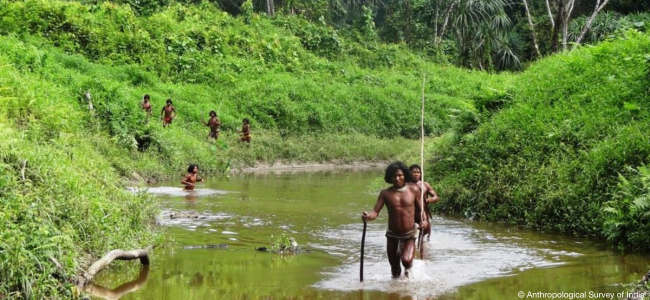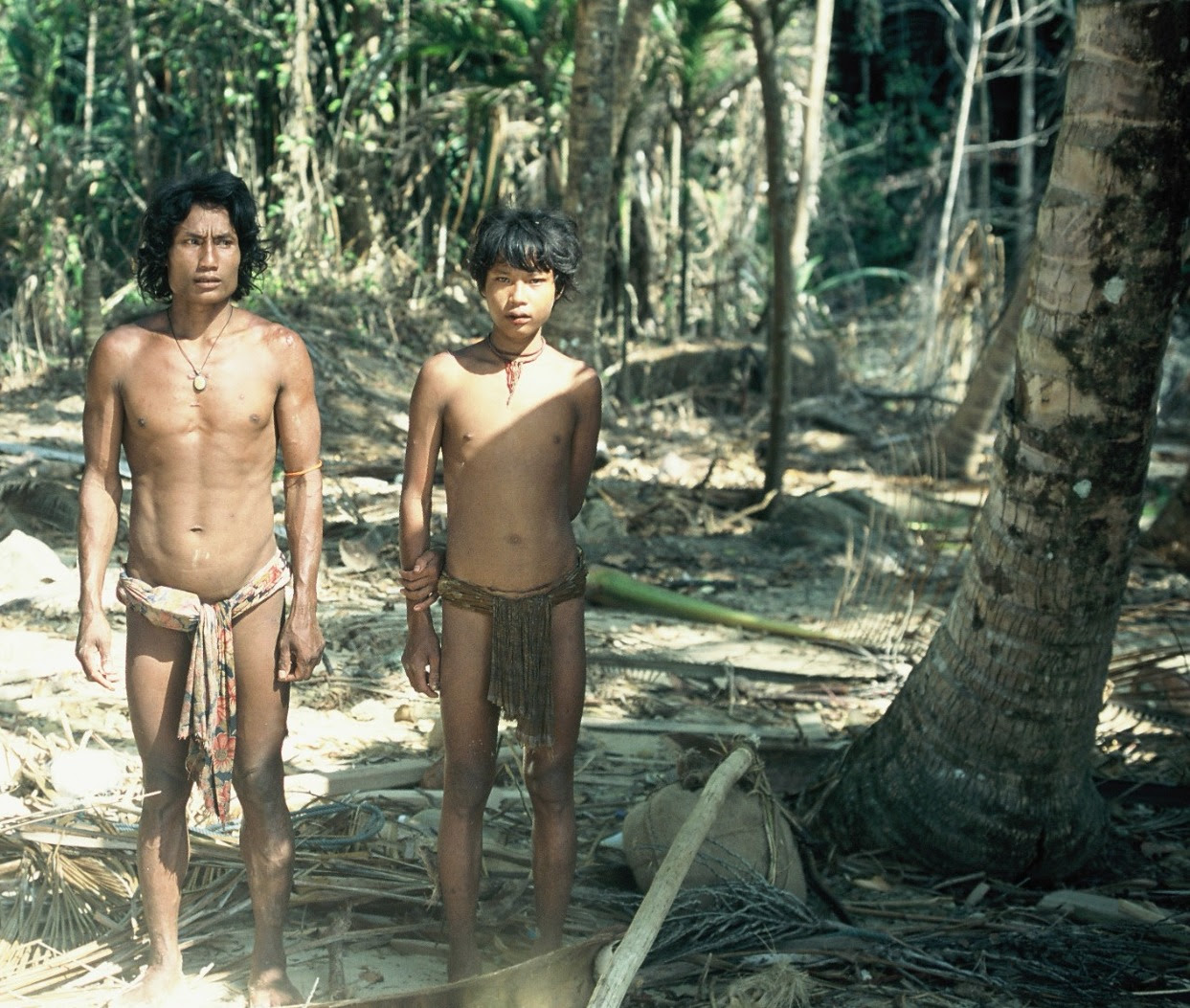
The Shompen live in the rainforests of Great Nicobar. If their forest and rivers are destroyed, they will be too. © ASI
Authorities in India have vowed to press ahead with a controversial mega-development project, despite experts’ warnings that it will destroy a unique uncontacted tribe.
The $5bn mega-port planned for the Indian Ocean island of Great Nicobar, plus associated ‘development’ such as a new city, defense base, industrial zones, airport and power station, will utterly destroy the Shompen people. They are one of India’s two tribes who shun contact with outsiders, alongside their neighbors, the better-known Sentinelese.
Numerous experts including 87 former high level Indian government officials and civil servants have called on the government to abandon the scheme. Since the Shompen cannot give their Free, Prior and Informed Consent to it, it is illegal under international law.

The Shompen are one of India’s two tribes who shun contact with outsiders, alongside their neighbors, the better-known Sentinelese. © Survival
The project does not yet have all the necessary approvals, but in a series of briefings the Indian authorities have made it clear that they will be pressing ahead with the project. They plan to transform the Shompen’s small island home into the “Hong Kong of India,” with a new city of 650,000 people just one of the project’s components.
Caroline Pearce, Director of Survival International, said today: “This project will devastate the Great Nicobar rainforest, where the Shompen live, and with it the Shompen themselves. They survived the 2004 tsunami, but there is simply no way they can survive this catastrophic destruction of their entire world.
“Not only will their livelihood be destroyed, but like all uncontacted peoples, they can be wiped out by diseases to which they have no immunity. It will be a genocide. We call on the Indian government to urgently scrap this scheme – it will destroy the Shompen if it goes ahead.”
Note: The 100 – 400 Shompen live only on Great Nicobar Island, as nomadic hunter-gatherers. They have lived there since time immemorial, and survived the 2004 tsunami, whose epicenter was close by. Some Shompen have limited contact with Indian officials, but the majority live uncontacted in the forests.










